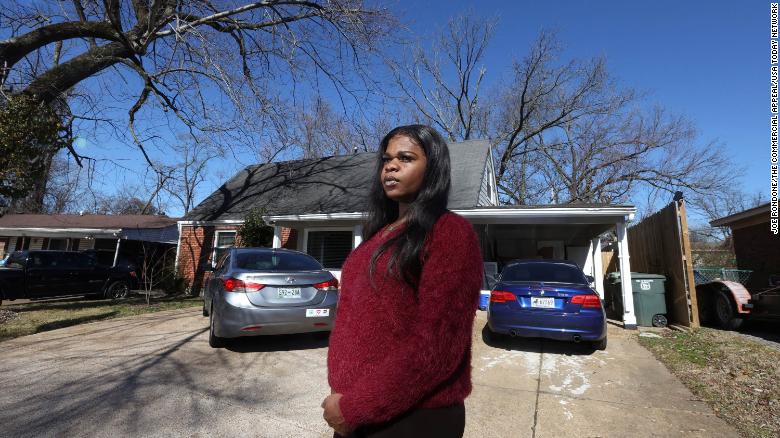Kayla Gore wants transgender people of color in the South to have a fighting chance.
In 2016, she and her friend Ellyahnna C. Wattshall were working at a local community center in Memphis, Tennessee, when they noticed emergency shelters were discriminating against trans people like them.
“It was just me and Ellyahnna at the (LGBTQ) community center one day,” Gore told CNN. “I was working there … and I was having a lot of frustration with the organizations that provided emergency shelter in Memphis.”
Gore said she was hearing reports from local trans people that shelters were asking invasive questions about their genitalia.
“(There was) no concern for the actual people who were in an emergency situation who needed housing,” Gore said.
That year, she and Wattshall created a new option: My Sistah’s House, a grassroots organization that provides emergency housing and resources to LGBTQ people, and especially trans people of color.
“The desire was for My Sistah’s House to be a place of refuge,” Gore said.
From an open bed to an organization
The seeds of the organization were planted when Gore began housing trans people in her own home.
After a while, though, she and Wattshall bought a dedicated house for trans people seeking emergency shelter.
“They needed somewhere to be,” Gore said. “And it blew up to what we are now — a fiscally sponsored organization that provides housing, sexual health resources and a couple of different advocacy platforms that we engage our community to be a part of.”
My Sistah’s House, along with providing housing, hosts clinics to educate trans people on the legal process of name changes, provides survival kits to local sex workers and offers resume coaching.
The services are “delivered by and for gender non-conforming people of color,” their GoFundMe says.
Covid-19 sparked yet another initiative
During the peak of the pandemic, Gore and her team noticed that more people were facing housing insecurity than ever before.
Finding a wealth of options for families but close to none for trans people, My Sistah’s House launched a project: It would aim to build 20 tiny homes for trans people seeking transitional housing.
A GoFundMe was launched and went viral soon after. The campaign raised $ 300,000 for the project — but Gore said this is only enough to build five homes.
Three have been built so far, and in March the first tiny home resident will be ready to move in.
Trans housing insecurity persists
Gore said that since the tiny home project went viral, more people have come to My Sistah’s House seeking services — and some are traveling long distances.
“I keep telling people it’s a double-edged sword,” she said. “It feels good that we can provide it. But people are having to travel 700-800 miles. It’s an eye-opening experience of the scarcity of housing resources for trans people in the South.”
Gore said the organization is able to secure emergency housing for out-of-state travelers through other programs.
But the challenges of being trans and houseless in the South persist.
Trans people facing financial and housing insecurity, Gore said, can pursue alternative employment like survival sex work, which can sometimes endanger them.
“(Housing insecurity) puts us in a situation where we’re doing things that we normally would not do,” Gore said. “It puts us in fight or flight mode all the time.”
At an office job, someone could take medical leave. But trans people are often left without anything to fall back on.
The aim of My Sistah’s House, she said, is to be the place in which they can fall back.
“Home means safety and security,” Gore said. “It’s a human right.”
>>>>

